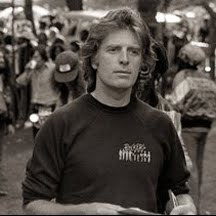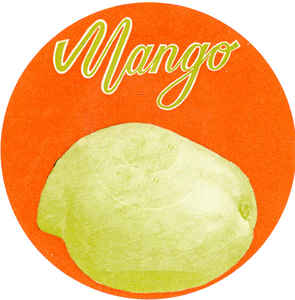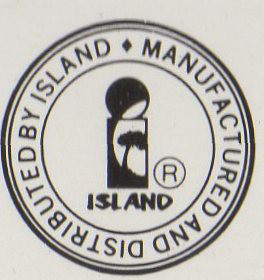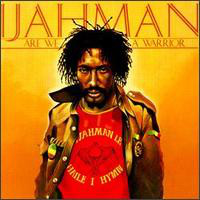Greetings,
As I’n’ I mentioned on-air: KRCL is building a new studio and we had to vacate our old space to make way for another four story apartment complex on the Northwest side of Salt Lake City.
That means, just like The Covid 2020, I’m back to building Smile Jamaica episodes from the cloudy living room of the Ark-Ives.
So that means it’s all digital for the summer. The black wax will have to wait. That takes about half of the usual selection out of rotation.
So I ‘n’ I decided I would do specialty Reggae programs for the interim:
- Father’s Day
- Roswell UFOria anniversary (July ’47)
- 33 Year Reggae Radio Anniversary (end of June)
- Summer of Dub
- Happy Birthday Haile Selassie (July)
And what I ‘n’ I played last Saturday: A chronological sampling of the Mango Records Reggae release catalog.
Our story starts with Chris Blackwell. Son of a British food producer father and a Sephardic-Jewish mother. Born in England, the family moved to Jamaica where Chris’s father was in the colonial army.

Instead of leaving Jamaica for a life in England, Blackwell stayed in Jamaica and started out managing jukeboxes throughout the Island. Of course, that brought him into contact with regular Jamaicans he encountered in bars and restaurants and absorbed their folk music traditions of mento, calypso and eventually horn-based ska.
If you have ever seen the movie Countryman, it incorporates part of Blackwell’s transition into Rasta cultural awareness. Chris was shipwrecked, rescued and nurtured back to health by a Rasta fisherman.
That same year (1958) Blackwell was gifted $10,000 dollars and started his Island Records label. Jamaican ska ‘n’ b, production assistant on the James Bond movie, Dr. No, which was filmed in Jamaica. Within a couple years he moved to England to become one of the first successful independent record producers.
He hit pay dirt right off the bat with Jamaican teenager Millie Small who recorded a ska version of a pop tune by Barbie Gaye entitled “My Boy Lollypop”. The record sold 6 million copies and introduced Jamaican music to the radio mainstream.
In the early to mid 60’s Island Records was a successful label releasing records from Traffic, King Crimson, Cat Stevens, Jethro Tull, Richard Thompson and many more. Quality rock and roll that sold millions of records.
Blackwell never forgot his Jamaican roots and was a major distributor of Reggae music from Jamaica into the UK.
Around 1972 he encountered the Wailers. They had been working with Lee “Scratch” Perry for his Upsetter label and many people think that was the group’s musical water shed.
Blackwell loaned the group enough money to record their first album: Catch a Fire. Catch a Fire is a foundation release. Nine tracks (six Rasta/protest tunes, three love songs.) Many of these songs were re-worked from the group’s ska era. But it is hard Jamaican, Rasta roots to the bone.
Problem was, Blackwell thought it was too “legit” for his rock audience. He wanted to sell not only to the Jamaican music scene in the UK. He wanted to treat the group like any of his rock acts.
So, he brought in some Nashville session musicians, who played on Traffic records, as sidemen. They added some psychedelic guitar and organ flourishes that really rock-i-fied their sound.
Blackwell invested in an expensive packaging release on the initial pressing. A fold-up record that opened like a Zippo lighter. Catch a Fire, geddit?
That album was one half of what introduced Reggae music to the UK rock buying public and college kid Americans in 1973.
The other catalyst moment for Reggae’s crossover was also connected to Blackwell: The Harder They Come.
Jimmy Cliff plays Ivan: a kid from the Jamaican bush who winds up in the city and turns to a life of crime. Filmed in Jamaica with a boisterous Reggae soundtrack, it is essentially a Jamaican Western showcasing the grim reality and majestic beauty of the island.
Ivan is killed in a glorious shootout and that movie made its wRay through Berkeley, Cambridge, Columbus and East Lansing college towns making a market for that inverted “chucka chucka” Reggae sound. Dreadlocks and ganja were every bit as culturally enticing as hippies and LSD were in the mid 60’s.
So, The Harder They Come (1972) and Catch a Fire (1973) allowed Blackwell to carve out a Reggae niche to fit this market. Rather than seeing Reggae lost in the promotional mix of his larger rock acts, he created the Mango Records imprint.
That label defined the non-Jamaican Reggae market: Toots & the Maytals, Burning Spear, Steel Pulse, Third World. Singers like Justin Hinds, Max Romeo, George Faith. He brought Lee “Scratch” Perry’s non-commercial, mythical and brooding Black Ark studio recordings into record huts across the globe.
***
But in the end, he was still a businessman. With The Wailers it became apparent that a trio wasn’t going to transcend out of the Reggae niche into the hockey arenas and soccer stadiums. Concerts made money and sold records.
So, alas, it became Bob Marley & the Wailers. In the secret history of Reggae music race always plays a part. Peter Tosh was too tall, too black too militant. Bunny Wailer, also too black, was too mystical. He hated touring cold cities and he bailed out on the tour after Burnin’ was released at the tail end of ’73 to cash in on the immediate success of Catch a Fire.
Bob Marley: Black Jamaican mother. White, (absent) English father. His lighter skin and angular features, especially as his dreads began to grow, made him look almost Mediterranean. He could be a brother to late 60’s era Carlos Santana
Blackwell saw in Bob an undeniable charisma. Men wanted to smoke a spliff with the dread. Women wanted to have his babies.
So, Catch a Fire and Burnin’ are credited to the Wailers but by 1974’s Natty Dread it was Bob Marley & the Wailers. Remove Bunny and Peter and supplant with the female backing of the I-Three. By the 1975 Live album, Bob Marley & the Wailers were a rock sensation selling out celebrity filled arenas and clubs across America, the UK, Europe and Japan.

Here is another story for the secret history. When Bob had a toe injury while playing soccer, it turned gangrenous. At one point he was advised that he should have part of his foot amputated.
But the pressure to continue releasing records and mounting his Babylon By Bus tours, Bob chose not to come off the road and have the surgery. Bob stalked the stage like a lion, how could he continue that playing guitar and moving about with a cane?
Alas, Bob died of melanoma, the ultimate gift from his absent white father, on May 11th, 1981. Some (irrationally) blame Blackwell for his passive aggressive pressure to keep building that audience of white fans and at the end he had finally crossed over into the black awareness as disco petered out in 1980.
Had Bob survived into the 80’s he would have been right there with Bruce Springsteen, Madonna and U2.
Peter Tosh called Chris Blackwell. “White worst.” Lee “Scratch” Perry was sued for defamation for claiming in his song, Judgement in a Babylon, that Blackwell was a vampire who killed Bob Marley to steal his royalties.
At the end of the day it is still a cut-throat business and Blackwell committed to Reggae music through Mango up until the Roots era of studio based, band crafted Reggae gave way to the digital electronic era of dancehall and slackness lyrics around 1985. Sporadic releases continued until Blackwell sold his record fortune to Polygram at the end of the 80’s.
But from 1972-1984, Mango Records was perhaps the best and consistently successful Reggae catalog that forms the foundation of the Smile Jamaica Ark-Ives.
So I ‘n’ I went to discogs.com and sorted the releases in chronological order: From 1972’s the Harder They Come to UK group’s 1979 magnum opus Tribute to the Martyrs.
That fills 3 hours of some of the best Reggae music that I ‘n’ I (the royal Rasta we) will ever hear.
So, thanks Chris. Without your instincts and ruthless business acumen Reggae might never have left the Island
bless, Bobbylon
Smile Jamaica Ark-Ives: June 12, 2021 Playlist
Set 1:
- Jimmy Cliff – The Harder They Come; The Harder They Come Soundtrack (Mango) ‘72
- Jimmy Cliff – Better Days are Coming; Struggling Man (Mango) ‘73
- Lorna Bennett – Breakfast in Bed; This is Reggae Music vol. 1 (Mango) ’74 Dusty Springfield cover
- Scotty – Skank in Bed; This is Reggae Music vol. 2 (Mango) ’75 dj to Lorna Bennett
- Toots & the Maytals – Country Roads; Funky Kingston (Mango) ’75 John Denver cover
- Burning Spear – Marcus Garvey; Marcus Garvey (Mango) ‘75
- Toots & the Maytals – Reggae Got Soul; Reggae Got Soul (Mango) ‘76
- The Heptones – Book of Rules; Night Food (Mango) ‘76
Set 2:
- Burning Spear – Brain Food; Garvey’s Ghost (Mango) ’75 dub to Marcus Garvey LP vox
- Dillinger – Buckingham Palace; CB 200 (Mango) ‘76
- Jah Lion – Wisdom; Colombia Colly (Mango) ‘76
- Lee “Scratch” Perry – Roast Fish Corn Bread; This is Reggae Music vol. 3 (Mango) ‘76
- Aswad – Natural Progression; Aswad (Mango) ‘76
- Burning Spear – Man in the Hills (Mango) ‘76
- Bunny Wailer – Blackheart Man; Blackheart Man (Mango) ‘76
Set 3:
- Justin Hinds & the Dominoes – Natty Take Over; Jezebel (Mango) ‘76
- The Upsetters – Dread Lion; Super Ape (Mango) ‘76
- Dillinger – Ragnampiza; Bionic Dread (Mango) ‘76
- Rico Rodriguez – Africa; Man From Wareika (Mango) ’76 trombonist
- Burning Spear – Black Disciples; Dry & Heavy (Mango) ‘77
- Third World – 1865 (96 Degrees in the Shade); 96 Degrees in the Shade (Mango) ‘77
Set 4:
- The Heptones – I Shall Be Released; Party Time (Mango) ’77 Bob Dylan cover
- Junior Murvin – Roots Train; Police & Thieves (Mango) ‘77
- Max Romeo – Melt Away; Reconstruction (Mango) ‘77
- George Faith – In the Midnight Hour/Ya Ya; To Be a Lover (Mango) ’77 Wilson Pickett/
- Bunny Wailer – Follow Fashion Monkey; Protest (Mango) ‘77
Set 5:
- Steel Pulse – Macka Splaff; Handsworth Revolution (Mango) ’78 herbtune
- Ijahman Levi – Jah Heavy Load; Haile I Hymn (Mango) ‘78
- Justin Hinds – Let’s Rock; Just in Time (Mango) ‘78
- Zap Pow – Bubbling Over; Zap Pow (Mango) ‘78
- Wailing Souls – Feel the Spirit; Wild Suspense (Mango) ‘79
- Roland Alphonso – James Bond; Intensified! (Mango) ’79 comp.; 007 sax
- Bob Marley & the Wailers – Exodus; One Big Happy Family (Mango) ’79 comp.
Set 6:
- Toots & the Maytals – Get Up Stand Up; Pass the Pipe (Mango) ‘79
- Ijahman Levi – Are We a Warrior; Are We a Warrior (Mango) ‘79
- Linton Kwesi Johnson – Fite Dem Back (Mango) ‘79
- Steel Pulse – Babylon Makes the Rules; Tribute to the Martyrs (Mango) ‘79

















